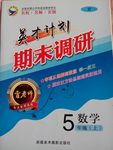题目内容
Students and Technology in the Classroom
I love my blackberry—it's my little connection to the larger world that can go anywhere with me.I also love my laptop computer,as it holds all of my writing and thoughts.Despite this love of technology,I know that there are times when I need to move away from these devices(设备)and truly communicate with others.
On occasion,I teach a course called History Matters for a group of higher education managers.My goals for the class include a full discussion of historical themes and ideas.Because I want students to thoroughly study the material and exchange their ideas with each other in the classroom,I have a rule—no laptop,iPads,phones,etc.When students were told my rule in advance of the class,some of them were not happy.
Most students assume that my reasons for this rule include unpleasant experiences in the past with students misusing technology.There's a bit of truth to that.Some students assume that I am anti-technology.There's no truth in that at all.I love technology and try to keep up with it so I can relate to my students.
The real reason why I ask students to leave technology at the door is that I think there are very few places in which we can have deep conversions(转变)and truly engage complex ideas.Interruptions by technology often break concentration and allow for too much dependence on outside information for ideas.I want students to dig deep within themselves for inspiration and ideas.I want them to push each other to think differently and make connections between the course,the material and the class discussion.
I've been teaching my history class in this way for many years and the evaluations reflect student satisfaction with the environment that I create.Students realize that with deep conversation and challenge,they learn at a level that helps them keep the course material beyond the classroom.
I'm not saying that I won't ever change my mind about technology use in my history class,but until I hear a really good reason for the change,I'm sticking to my plan.A few hours of technology-free dialogue is just too sweet to give up.
1.Some of the students in the history class were unhappy with _______.
A. the course material B. others' misuse of technology
C. discussion topics D. the author's class regulations
2.The underlined word "engage" in Para.4 probably means _______.
A. explore B. accept
C. change D. reject
3.According to the author,the use of technology in the classroom may_______.
A. keep students from doing independent thinking
B. encourage students to have in-depth conversations
C. help students to better understand complex themes
D. affect students' concentration on course evaluation
4.It can be inferred from the last paragraph that the author _______ .
A. is quite stubborn
B. will give up teaching history
C. will change his teaching plan soon
D. values technology-free dialogues in his class
 名师点拨卷系列答案
名师点拨卷系列答案 英才计划期末调研系列答案
英才计划期末调研系列答案

 et things do better, like when you are running towards the finishing line or when you are being asked to give a speech to your class. Stress sometimes can help push you to make full preparation for a test. However, too much stress can result in anger, depression and other related problems, which we need to take serious.
et things do better, like when you are running towards the finishing line or when you are being asked to give a speech to your class. Stress sometimes can help push you to make full preparation for a test. However, too much stress can result in anger, depression and other related problems, which we need to take serious.